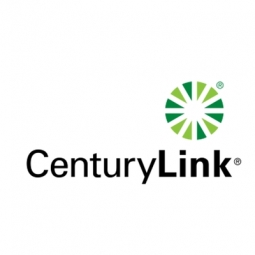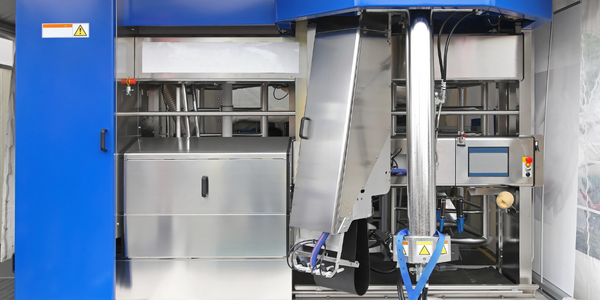Customer Company Size
Mid-size Company
Region
- America
Country
- United States
Product
- CenturyLink MPLS network
- CenturyLink Hosted VoIP
- CenturyLink Colocation
- CenturyLink Cloud
- CenturyLink Network Based Security
Tech Stack
- MPLS
- VoIP
- Cloud Computing
- Colocation
- Network Security
Implementation Scale
- Enterprise-wide Deployment
Impact Metrics
- Cost Savings
- Productivity Improvements
- Customer Satisfaction
Technology Category
- Infrastructure as a Service (IaaS) - Cloud Computing
Applicable Industries
- Agriculture
Applicable Functions
- Sales & Marketing
- Business Operation
Use Cases
- Process Control & Optimization
- Cybersecurity
- Remote Asset Management
Services
- Cloud Planning, Design & Implementation Services
- Cybersecurity Services
About The Customer
Landmark Implement is a leading John Deere dealer in the United States, specializing in customer service and a full range of new and used gear and service. The company was formed in 2006 through the merger of four John Deere equipment dealers in Nebraska and Kansas. Landmark also operates an irrigation and grain handling business offering products and services for watering fields and moving grains after harvest. The business has grown over the years through acquisition and now operates 17 locations in addition to its headquarters. The IT department serves 450 users in two states and has to be prepared for further growth and new locations. Each Landmark location is a combination of sales operations and field service center as well as a local outpost for the John Deere brand of farm equipment.
The Challenge
Landmark Implement, a leading John Deere dealer in the US, was formed through the merger of four equipment dealers and grew through further acquisitions. However, the company had not developed a real IT strategy for integrating these sites into a single operation. Newly acquired offices brought multiple vendors, multiple transport types, and varying levels of network performance. Centralized applications had no consistency and it was difficult to rein in costs as they attempted to stitch things together with technologies such as frame relay over leased lines. Amid this increasing complexity, John Deere also raised its expectations of IT capability among its leading dealers in the Large Ag Sector where Landmark plays. Landmark hired Brian Martin as director of IT to address these related challenges and opportunities.
The Solution
Landmark and CenturyLink began working on a long-range plan to not only upgrade phone capabilities, but to establish an IT strategy that would scale with Landmark’s growth plans. They created a plan that moved in stages over the course of months to spread out costs and so that Martin could demonstrate to management the benefits in each stage. Martin and CenturyLink replaced his frame relay system with a CenturyLink MPLS network that serves as a backbone for the operation. MPLS now connects all 18 locations across Nebraska and Kansas including the company headquarters, bringing the unification that Martin sought. The first step toward increased efficiency was moving the phone service to CenturyLink Hosted VoIP over that MPLS network. With that network upgrade in place, Martin also moved his core data center into a CenturyLink Colocation arrangement. That allowed Martin to implement Network Based Security to protect his operation. The colocated systems also run his core internal services such as Microsoft Sharepoint and e-mail. More recently, Martin added CenturyLink Cloud to deploy an app-based mobile strategy.
Operational Impact
Quantitative Benefit

Case Study missing?
Start adding your own!
Register with your work email and create a new case study profile for your business.
Related Case Studies.
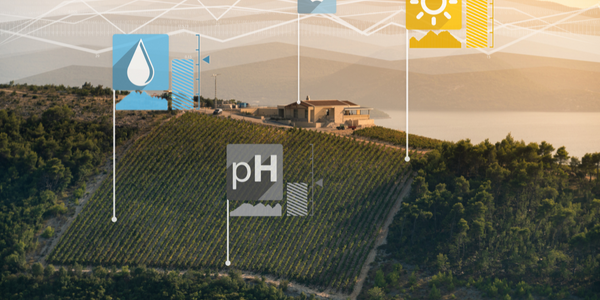
Case Study
Intelligent Farming with ThingWorx Analytics
Z Farms was facing three challenges: costly irrigation systems with water as a limited resource, narrow optimal ranges of soil moisture for growth with difficult maintenance and farm operators could not simply turn on irrigation systems like a faucet.
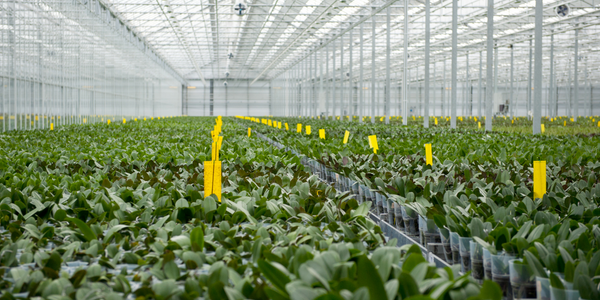
Case Study
Greenhouse Intelligent Monitoring and Control Solution
Farming Orchids is the most successful form of precision farming in Taiwan, and also the most exported flower. Orchids need a specific temperature and humidity conditions to grow and bloom, and its flowering time may not be in line with market demands, so the price collapses when there is overproduction. Therefore, some farmers began to import automated greenhouse control systems for breeding and forcing, which not only improves quality, but also effectively controls the production period and yield to ensure revenue. In 2012, an orchid farmer built a Forcing Greenhouse of about 200 pings (approximately 661 Square Meters) in Tainan, Taiwan. The system integrator adopted Advantech’s APAX-5000 series programmable automation controllers to build the control platform, coupled with Advantech WebAccess HMI/SCADA software, to achieve cloud monitoring. The staff of the orchid field can monitor important data anytime via smart phone, iPad, and other handheld devices, and control the growth and flowering conditions. System requirements: In the past, most environmental control systems of orchid greenhouses in Taiwan used PLCs (Programmable Logic Controller) with poorscalability and control, and could not be connected to the Internet formonitoring from the cloud. For advanced database analysis and networking capability, the PC platform must be adopted. Therefore, PAC Systems (Programmable Automation Controller) with both PLC programming capabilities andPC functions is a better choice.The environmental control of the Orchid greenhouse switches on and off devices like fan, shade net, cooling/heat pump, liquid flow control, water-cooling wall etc. It is controlled by a control panel of electric controllers, and is driven by a motor, to adjust the greenhouse temperature, humidity, and other environmental conditions to the set parameters.

Case Study
Precision beekeeping with wireless temperature monitoring
Honeybees are insects of large economic value and provide a vital service to agriculture by pollinating a variety of crops. In addition, bees provide us with valuable products such as honey, beeswax, propolis, bee venom, etc. Monitoring of honeybee colony health, population, productivity, and environmental conditions affecting the colony health have always been exceedingly difficult tasks in apiculture. Research has shown that even small deviations (by more than 2°C) from the optimal temperatures have a significant influence on the development of the brood and the health of adult bees.
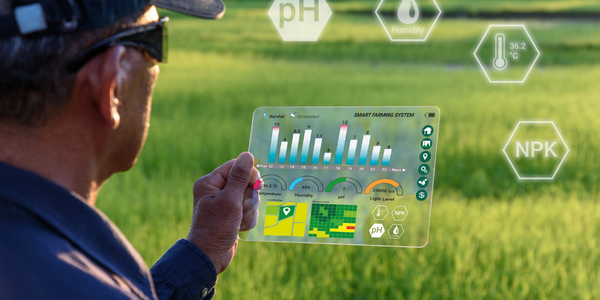
Case Study
Enabling Internet of Things Innovation in Agriculture
DigiBale, wanted to apply technology know-how and IP from implementations successfully to more agriculture sectors including cotton, forestry, sugarcane and cattle. However, farmers and growers still have worries about the connected technology.




